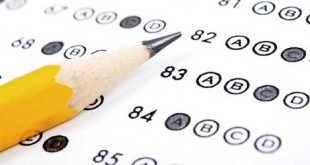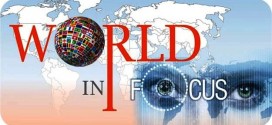The Next-decade Man
Many maintain that the incumbent Chinese President Xi Jinping, perhaps greatest leader in the contemporary world, is the next-decade man as he is poised to lead the world with his revolutionary vision. The recent historic development of his for-life elevation to the Chinese presidency has taken the world by storm. He is the next-decade man for all other incumbents will leave their respective offices after the completion of their respective terms. No other parliament of the world will dare to elect a head of state for life. Most notably, Russia recently elected Vladimir Putin as president yet again, but for another time that will end in 2024. Thus, unique position is President Xi’s, as he will survive President Putin, too.
True, the US president is much assertive and the Russian strongman has also left no stone unturned to be an iron man but the Chinese top leader has outdone others. Xi Jinping wields more power, and his political might gives him an edge over his counterparts.
Appointed as President by the National People’s Congress (NPC) in March 2018, Xi Jinping, who also heads the Communist Party of China (CPC) and chairs the Central Military Commission, has risen to the highest rung of the political ladder and is widely viewed as the most dominant leader of China – after Deng Xiaoping and nation’s father Mao Zedong. Earlier on October 25 last year, he was honoured by the CPC when his name and ideas were enshrined in the party constitution, making President Xi only second to the founding father of China i.e. Chairman Mao.
On March 11, 2018, the NPC passed changes to the country’s constitution abolishing presidential term limits, officially allowing him to remain in office after the end of his second term in 2023. Consequent upon, he was reappointed president for life by the NPC on March 17, 2018.
Why the NPC has endowed Xi with presidency for life, when his preceding powerful political players like Deng Xiaoping, the architect of modern China, could not wield such power? Perhaps, context matters much. For this is the era of competition of the giants. The world order is at the crossroads of tri-polarity and, in this regard, high expectations from Xi could be the cogent reason behind this move. China is the frontrunner of the marathon of being a world power and the CPC is certain that he can do it. He has been elevated in order that he may continue long-term policies that are indispensable to adding an impetus to China’s efforts to raise itself as a formidable power on the world stage. To the Chinese, it is he who can rejuvenate China’s glory; he is now an omnipotent president, thanks to his employment of ‘actions-speak-louder-than-words’ approach; he enjoys the one-man rule for his across-the-board corruption campaign; and, above all, it is he who can outdo all of China’s competitors in the race of turning into a world power.
Notably, President of the United States, Donald J. Trump, is afire to ‘Make America Great Again’ and Vladimir Putin is going all out for gaining Russia its lost status and, hence, to recuperate its lost overpowering position. But, it is President Xi who makes a difference vis-à-vis the other two. President Xi is striking gold; he is translating his plans into tangible realities. The substantial rise in the arenas of economy, diplomacy, trade and political clout around the globe suggest China’s unprecedented development. The stay of the ambitious Chinese strongman at the helm of China’s affairs for life is another feather in his cap.
One wonders why the two other contenders i.e. USA and Russia are on a collision course with many states across the globe, busying themselves in the business of nuclear weapons and the like activities at a time when China, contrarily, is busy in making ‘economic bombs’. China’s economic policies are working wonders. Its grand strategies exemplified by the ‘One Belt, One Road’ (OBOR) and its project of China-Pakistan Economic Corridor (CPEC), as well as its defence system – like that the network of Indian Ocean bases – make China visibly mightier in the world. China is making inroads into Eurasian countries through the gigantic OBOR initiative that will multiply its political might globally. The others are proponents of hard diplomacy whilst China under Xi carries the torch of peaceful coexistence. While elaborating the panoramic perspective of the OBOR, the policy of peacefulness is glimpsed in President Xi’s words:
“Spanning thousands of miles and years, the ancient silk routes embodies the spirit of peace cooperation, openness and inclusiveness, mutual learning and mutual benefit … [w]e should foster a new type of international relations featuring win-win cooperation; and we should forge partnerships of dialogue with no confrontation and of friendship rather than alliance.”
In global trade rankings, the United States is atop with China following closely at number two. But, this is an undeniable fact that China’s share in global economic output is waxing while that of the US is waning. Many economists predict that China will be the world’s biggest economy by 2025 as the US is fast losing the trade war to China. On April 04, 2018, Donald Trump tweeted: “We are not in a trade war with China, that war was lost many years ago by the foolish, or incompetent, people who represented the US. Now, we have a Trade Deficit of $500 billion a year…” Thus, such an evaluation by the US President speaks volumes about the upper hand of China in trade.
In addition, Xi Jinping has opted for a more assertive foreign policy. He is working on the agenda of economic expansion and strong defence management. As the world is going multi-polar – and China is a strong candidate for a world-power status – President Xi has cast off the erstwhile policy of nonintervention in the world issues; hitherto, China has been altogether indolent in international issues. But, it has recently impressed upon the world that it would no longer be a silent spectator. In a speech delivered at the annual session of the NPC in March 2018, Xi Jinping reaffirmed that China would ‘take its due place in the world’ and it was ready “to fight bloody battles against our enemies”.
China has excelled the other two in the arena of diplomacy as well. Examples abound. President Xi took full advantage of the situation – and, thus, asserted its influential role in world politics – when North Korea agreed to take the road of negotiations with the United States on the issue of its nuclear and missile programme in the start of March this year. Earlier, the two states had been at loggerheads; sharing a long history of hostility. When the NK showed its willingness to hold talks with Washington and Seoul, its leader Kim Jong-un paid a secretly-guarded visit to China, exuding a feeling that China is on its back.
Additionally, the all-powerful Xi is strongly asserting China’s rights over the South China Sea – the erstwhile burning issue in which the United States was leading an alliance of the Southeast Asian countries vis-à-vis China. The former has gone all out to win, diplomatically well handling the issue and making them all silent. Hence, it is no longer a hot issue. Consequently, the US had to lick the dust in this battle.
Moreover, China’s best bet is its policy of balancing act – an essential characteristic to have a worthy place in the comity of nations – whereas the other two contenders bear bullying demeanour toward other states. Dokhlam standoff between China and India warrants a special mention in this regard. This issue has been a bone of contention for the past couple of years, China has well avoided any confrontation with its regional rival. Now both the countries have taken the road of rapprochement.
Xi Jinping is well alive also to the issues contemporary world is mired in at present, and he is always at it. His concerns on the world peace are glimpsed in his speech delivered at the ninth summit of BRICS in September 2017 wherein he said: “[I]ncessant conflicts in some parts of the world and hotspot issues are posing challenges to world peace.” In addition, China’s participation in Afghan peace process, its aid to the helpless Syrians, and its proposal for three-step solution to Myanmar’s Rohingya crisis are some of the examples that show the China’s surging sway.
Said simply, President Xi Jinping has great political acumen. Some may doubt it, nonetheless. The policies of the White House and the Kremlin have also been fathered by established leaders but none would deny that the counter-moves by the Chinese President are far more effective in outsmarting others. He is increasingly being seen – and rightly so – as a world leader. Thus, the stage for the next-decade man to lead the world is set and, with this, China is likely to become a strong world power during Xi’s rule.
 Jahangir's World Times First Comprehensive Magazine for students/teachers of competitive exams and general readers as well.
Jahangir's World Times First Comprehensive Magazine for students/teachers of competitive exams and general readers as well.



